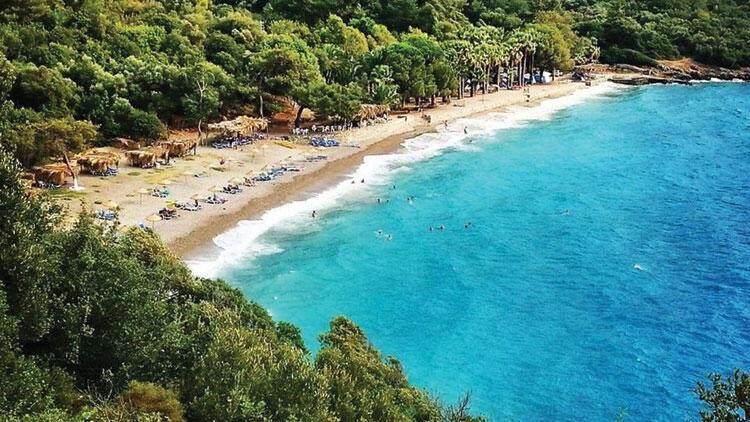
A bay in Turkey’s southwest has been established as a reserved area for sandbar sharks (Carcharhinus plumbeus) in a decision barring fishers and divers from the area.
Boncuk Bay in the touristic Marmaris district of the southwestern Muğla province has been declared as a protection zone by the Directorate General for Preservation of Natural Heritage after it has been found that it is the sole established nursery ground of the sandbar sharks in the Mediterranean.
“All sorts of fishing and diving activities in the bay is forbidden. In a sense, the bay is reserved for sharks. They will be monitored via satellite transmitters put on them,” said Zafer Kızılkaya, head of the Mediterranean Conservation Society.
As a species native to the Atlantic Ocean and the Indo-Pacific, sandbar shark is listed as vulnerable due to overfishing.
“Some 100 million sharks are being killed every year. They are under grave danger. Their importance is great. Because they are at the top of the food chain. Removing them from the food chain disrupts the ecosystem,” he said.
“The sharks coming to the bay can grow as big as 2 meters. They arrive on April and May. We can observe them during the year occasionally depending on the sea water temperature. According to the observations we have made for five years, they don’t come here if the temperature is above 26 degrees Celsius. In this area, the water temperature increases above 26 degrees starting from August until mid-September, thus the sharks leave here in that period,” added Kızılkaya, who has been involved in monitoring the sharks since 1987.
The sandbar shark is one of the biggest coastal sharks in the world and it has a similar appearance to other dangerous sharks such as bull sharks, however, it is considered not to be dangerous to people. It preys on fish, rays, and crabs.
The Mediterranean Conservation Society has been conducting a project in the Gulf of Gökova, which houses tens of bays such as the Boncuk Bay, to monitor and protect species including the sandbar shark and the Mediterranean Monk Seal.
“There’s another area near the Boncuk Bay, the English Bay where fishing is prohibited. When we seized the net of a fishing boat involved in illegal fishing there, we saw some 20 baby sharks. That is to say, they go to protected areas with plenty of fish after giving birth. It shows the high importance of the protected areas. Banning fishing there is of high importance to the survival of these animals,” said Kızılkaya.
The longevity of the sandbar shark is typically 35–41 years. Females reach sexual maturity around the age of 13.
In the Gulf of Gökova, where more than 200 coastal fishermen operate, six areas have been declared closed to the fishery in 2010 in order to recover the reduced fish stocks and to protect sensitive spawning areas. The Marine Ranger Service System was developed with the idea that the protection activities in the areas should be increased and the responsible institutions should be supported in this respect. The ranger boats with cameras and other technological equipment started to work in 2013.